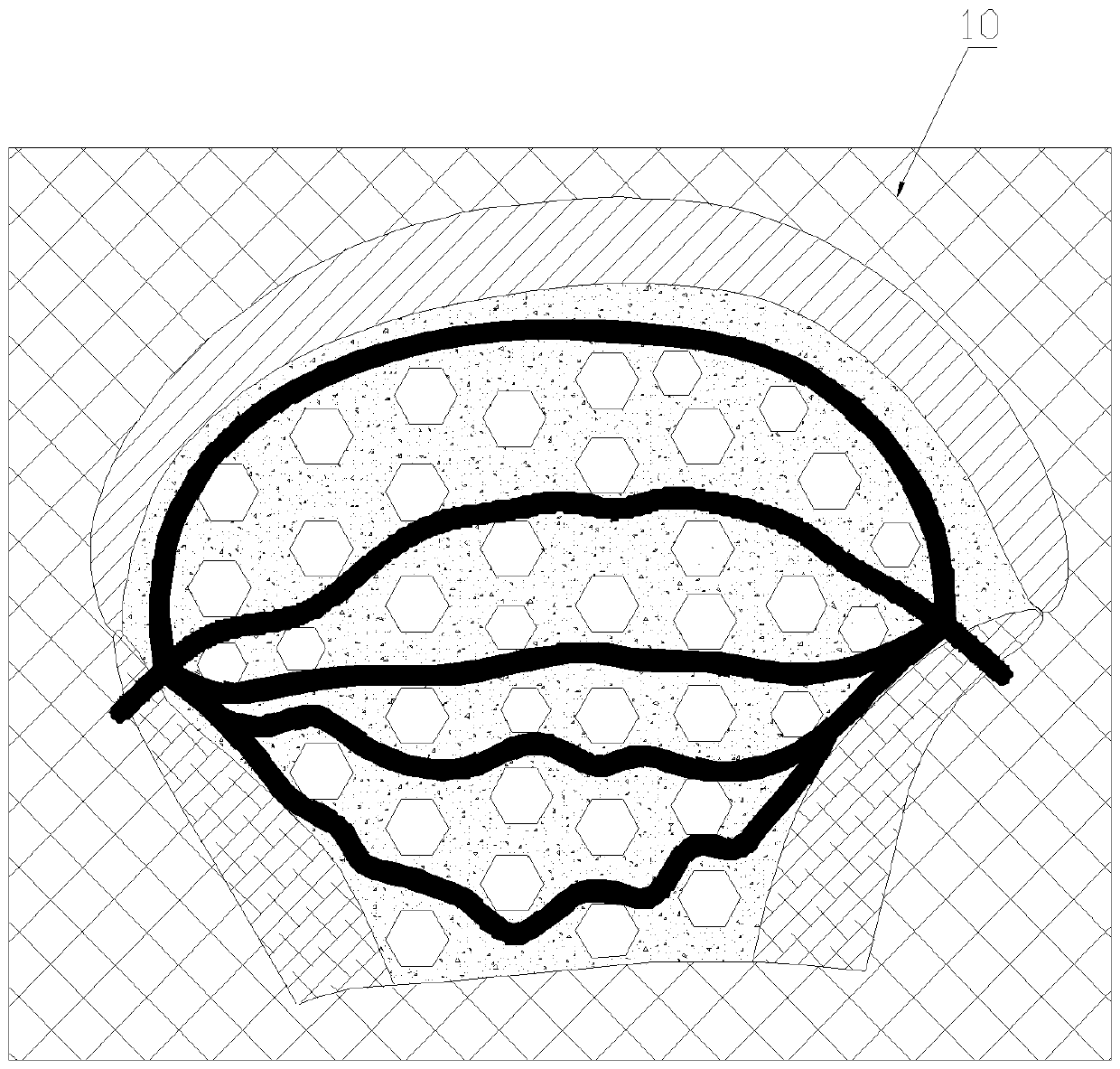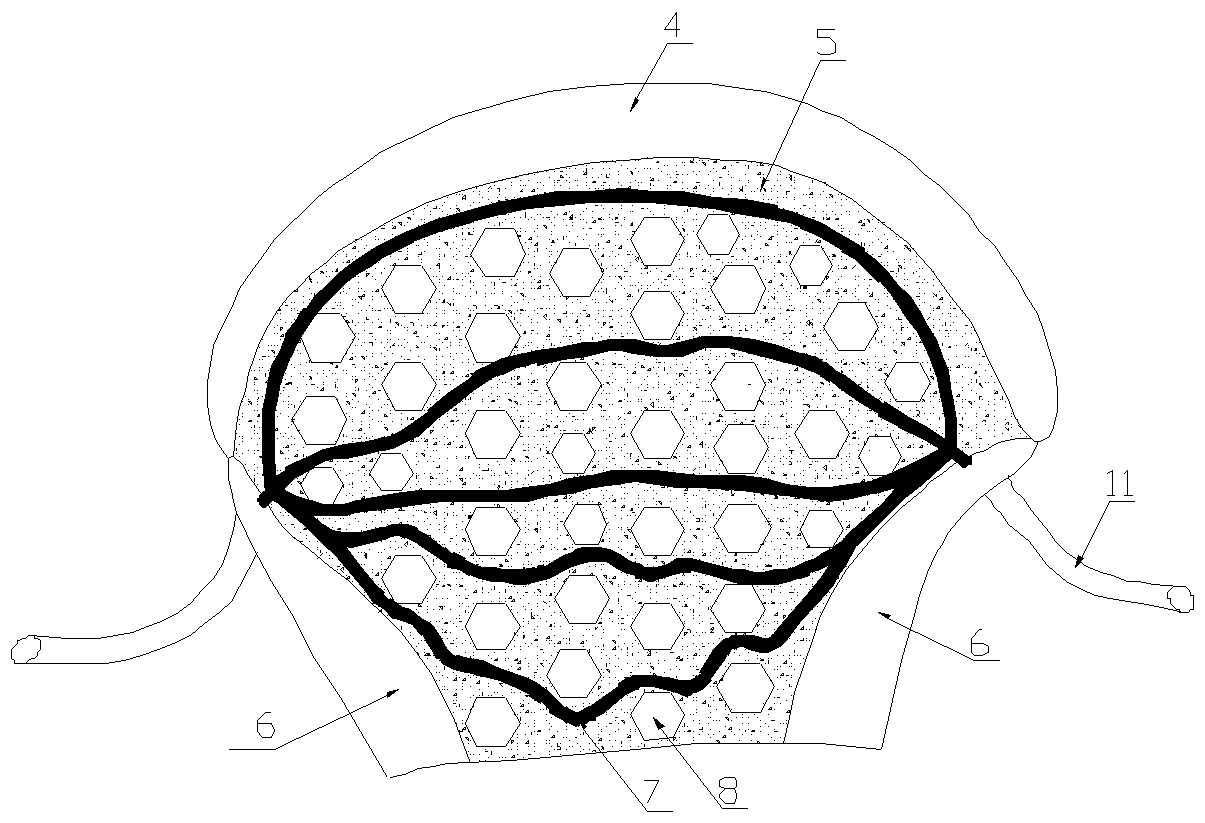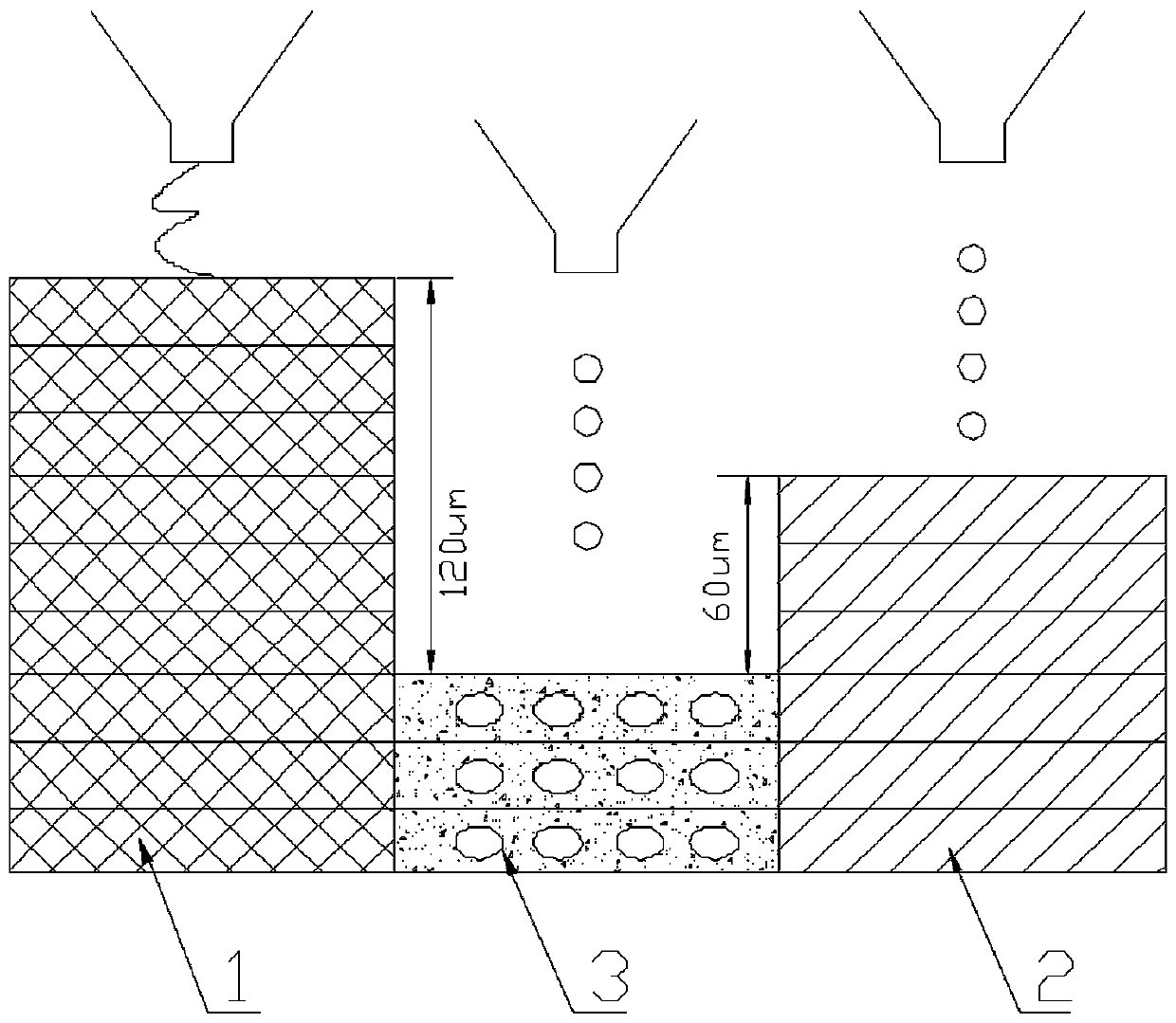Cartilage-bone-marrow composite tissue structure based on 3D living cell printing and method of cartilage-bone-marrow composite tissue structure
A composite tissue and 3D printing technology, applied in the field of biomedical engineering, can solve problems such as material interference, and achieve the effect of avoiding collapse and ensuring stability
- Summary
- Abstract
- Description
- Claims
- Application Information
AI Technical Summary
Problems solved by technology
Method used
Image
Examples
Embodiment Construction
[0038] This embodiment discloses a method for preparing cartilage-bone-bone marrow composite tissue based on biological 3D printing, including the following steps:
[0039] 1. Biological information collection and modeling:
[0040] 1) By optimizing the bone structure image acquisition method, using perfusion casting and omics three-dimensional cross-sectional reconstruction technology, the three-dimensional data of the internal and external structures of the epiphysis of the human tibial plateau and blood circulation tube network are collected in a personalized manner;
[0041] 2) Input the collected biological information into computer software, express the actual tissue appearance and microenvironment as a bionic multi-material, multi-scale geometric model, and establish a bionic three-dimensional mathematical model of cartilage-bone-bone marrow and its microvessels.
[0042] see figure 1 , figure 2 , Figure 4 , the geometric model includes:
[0043] a. Cartilage area...
PUM
 Login to View More
Login to View More Abstract
Description
Claims
Application Information
 Login to View More
Login to View More - R&D
- Intellectual Property
- Life Sciences
- Materials
- Tech Scout
- Unparalleled Data Quality
- Higher Quality Content
- 60% Fewer Hallucinations
Browse by: Latest US Patents, China's latest patents, Technical Efficacy Thesaurus, Application Domain, Technology Topic, Popular Technical Reports.
© 2025 PatSnap. All rights reserved.Legal|Privacy policy|Modern Slavery Act Transparency Statement|Sitemap|About US| Contact US: help@patsnap.com



